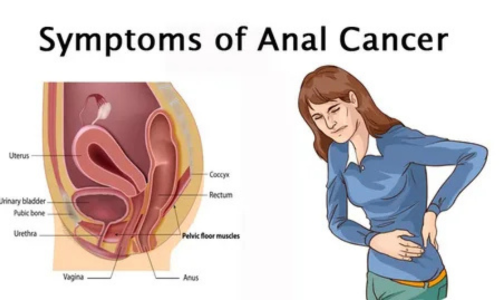
Early Signs of Anal Cancer You Shouldn’t Ignore
Anal cancer is often a silent disease, with early symptoms that can be subtle or mistaken for other conditions. However, being aware of these signs can lead to early detection and significantly improve treatment outcomes. Here are five key warning signs of anal cancer to watch for:
1. Bleeding from the Anus
- What to Watch For: Light bleeding that may appear on stool, toilet paper, or undergarments.
- Important Note: While anal bleeding can also result from hemorrhoids or anal fissures, it’s crucial to consult a doctor to identify the underlying cause.
2. Changes in Bowel Habits
- Symptoms Include:
- Persistent diarrhea or constipation.
- Changes in stool consistency.
- A sensation of incomplete bowel emptying.
- Action to Take: Any noticeable or lasting changes in bowel habits warrant a medical evaluation to rule out serious concerns.
3. Pain or Pressure in the Anal Area
- What to Notice:
- Persistent or intermittent pain in the anal region.
- A sensation of pressure or the presence of a lump.
- Why It Matters: Discomfort in this area could signal underlying issues, including anal cancer.
4. Skin Changes or Itching Around the Anus
- Common Signs:
- Persistent itching.
- Blisters, hyperpigmentation, or other unusual skin changes.
- Potential Causes: While such symptoms are often linked to fungal infections or eczema, they should not be ignored, as they could also be early indicators of anal cancer.
5. Lumps or Swellings
- What to Look For:
- Lumps or swellings in the anal area that may be felt externally or noticed without touch.
- Important Reminder: Lumps could result from swollen glands or tumors. Prompt medical attention is critical for diagnosis.
Don’t Ignore These Symptoms
While these signs may be caused by other health conditions, such as infections or benign growths, it’s essential to consult a healthcare provider for a proper diagnosis. Early detection greatly increases the chances of successful treatment and minimizes complications.
Prevention and Routine Check-Ups
- Regular medical check-ups and open communication with your doctor can aid in early diagnosis and effective management.
- Routine screenings play a significant role in preventing anal cancer by identifying precancerous conditions early.
By staying informed and acting promptly, you can take control of your health and reduce the risks associated with anal cancer. If you notice any of these signs, don’t hesitate to seek medical advice—it could save your life.
Leave a Reply